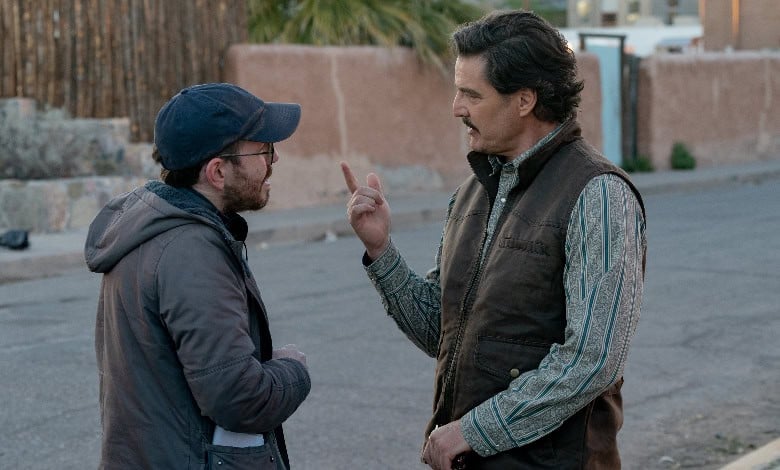NY Times Critic Curses ‘Eddington’ Director for Mocking BLM
Ari Aster's blistering satire targets woke overreach, far-right conspiracies and more

Stephen Colbert wouldn’t touch it.
Nor would Jimmy Kimmel, John Oliver, Jimmy Fallon, Seth Meyers or Jimmy Kimmel.
“Saturday Night Live?” As they say in New York, fuhgeddaboudit!!
It’s Black Lives Matter (BLM), the hard-Left group that had a cultural moment following George Floyd’s death. The group’s influence has waned dramatically since that period. Allegations of fiscal impropriety will do that.
So will a ghastly social media post cheering on rape and murder.
The BLM chapter in Chicago just posted this in support of Hamas. pic.twitter.com/oLA1MwzoVO
— Julio Rosas (@Julio_Rosas11) October 10, 2023
Mainstream humor platforms took a “hands off” approach to the movement, fearful of angering their liberal viewers (and telling inconvenient truths).
Ari Aster isn’t afraid.
The director’s new film, “Eddington,” sharply pokes both BLM and its white adherents. The film takes us back to May 2020, a time when severe pandemic restrictions swarmed the nation. That month also saw the rise of BLM following Floyd’s death during a police altercation.
If you haven’t watched, “The Fall of Minneapolis,” you should. The film debunks many of the Legacy Media narratives surrounding Floyd’s passing.
Aster isn’t up front about his politics like some Hollywood artists, but “Eddington” mocks all sides of that culture war moment. His characters are glued to their smartphones, absorbing conspiracy theories daily.
It’s far from flattering.
The residents of this fictional New Mexico hamlet also take up the BLM cause, especially the young white denizens. And they don’t have a clue what they’re talking about.
That’s satire, folks. And veteran The New York Times critic Manohla Dargis is spitting mad because of it.
The review in question came out via “The Last Thing I Saw” podcast. The episode, released at the end of May, followed the film’s Cannes debut. Aster’s film drew conflicting comments at the time. His work (think “Midsommar” and “Beau Is Afraid”) often elicits that response.
Here’s what Dargis said about the film (and her reaction to it) on the podcast:
“It’s cheap. It’s really cheap. There’s nothing at stake for [Aster] … he’s not a great enough filmmaker to get away with the vacuousness of his ideas. I was really offended by it,” Dargis said.
“In this moment in time, and what is happening in the United States, the movie is profoundly dated. He seems to kind of miss – it’s not about power. It’s about individuals and how they’re reacting to these forces. There’s just all these tells.”
She explains how Joaquin Phoenix’s character, a white sheriff who is skeptical of both BLM protests and mask mandates, lives in a humble home. Meanwhile, Pedro Pascal’s Latino mayor, an unspoken progressive, lives “in a really nice bright house.”
“F*** you, Ari Aster. Really, seriously. It’s so easy to mock these things. People are still dying from COVID. We may no longer be living in a pandemic… I just don’t find it funny, and I find it really important for people to, I think white people should interrogate their f***Ing whiteness, and I think Ari Aster should start,” she added.
Is it any wonder the Jimmys of late-night TV wouldn’t touch BLM-related yuks? Dargis and her fellow progressives would turn off the channel in disgust.
